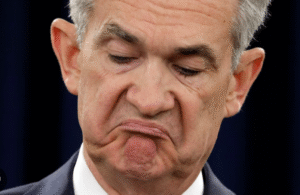$NZD $EEM $BTC
#NewZealand #TradePartnership #SouthPacific #UAEEconomy #GlobalTrade #EconomicDevelopment #ForexTrading #ExportMarket #EmergingMarkets #NZEconomy #InternationalRelations #TradeOpportunities
New Zealand’s decision to diversify its trade strategy highlights the country’s evolving approach to international economic partnerships, as demonstrated by its recent agreement with the United Arab Emirates (UAE). Prime Minister Chris Hipkins, in a move that signals a shift from regional to global trade horizons, has emphasized the need for the country to expand beyond the South Pacific to secure long-term prosperity. New Zealand’s reliance on its geographically proximate partners often limits its export potential and economic growth, prompting this broader outreach. The newly signed economic partnership with the UAE represents a strategic pivot to tap into the thriving economies of the Middle East. UAE, being a global trade hub, offers New Zealand businesses significant access to larger markets and fast-growing sectors, such as renewable energy and technology.
This push to diversify international trade relations could have interesting implications for New Zealand’s currency, the NZD, as well as its position in emerging markets. New Zealand exports heavily rely on agricultural products like dairy, meat, and wine, which contribute significantly to its GDP. By signing a partnership with the UAE, New Zealand is potentially opening new pathways for these products into lucrative markets across the Gulf Cooperation Council (GCC) countries. If the partnership successfully bolsters trade, it could boost the NZD’s value in forex markets over time. Additionally, it aligns with the rising demand in the Gulf region for efficient food supply chains and sustainability-focused practices, areas where New Zealand has a competitive edge. The broader trade relationship also mirrors a growing trend of countries reducing over-dependence on China, a key New Zealand export destination, by diversifying toward other regions.
Market analysts see this partnership as a bridge that might not just serve New Zealand’s export ambitions but also draw UAE investments into key sectors, such as agriculture, renewable energy, and tech startups. If these areas witness substantial capital inflow, it could significantly stimulate economic development in New Zealand. Furthermore, the deal comes during a time of heightened global economic uncertainty, with high inflation and slowing growth continuing to weigh on both developed and emerging markets. Diversifying trading partners can provide a hedge against such risks, creating opportunities for more resilient economic performance. The trade agreement could also bolster the renewable energy initiatives of both nations, aligning with global trends toward green energy investments, which could be attractive to ESG (Environmental, Social, and Governance)-focused investors.
The broader implications of this partnership also intersect with the cryptocurrency and blockchain landscape. The UAE is a recognized hub for digital assets and blockchain innovation, and this trade and investment relationship could potentially introduce New Zealand businesses to these technologies. Blockchain, for instance, could be leveraged to streamline New Zealand’s supply chain operations and enhance transparency in its exports. Additionally, the partnership may influence digital asset markets indirectly, propelling the idea that such alliances could bolster blockchain adoption for cross-border transactions. Should these opportunities materialize, cryptocurrencies like Bitcoin ($BTC), which are often heavily traded in the UAE, could see an uptick in relevance in trade facilitation between the two countries. Overall, this economic partnership with the UAE appears to be a calculated move that could unlock diverse growth trajectories for New Zealand’s economy.











Comments are closed.